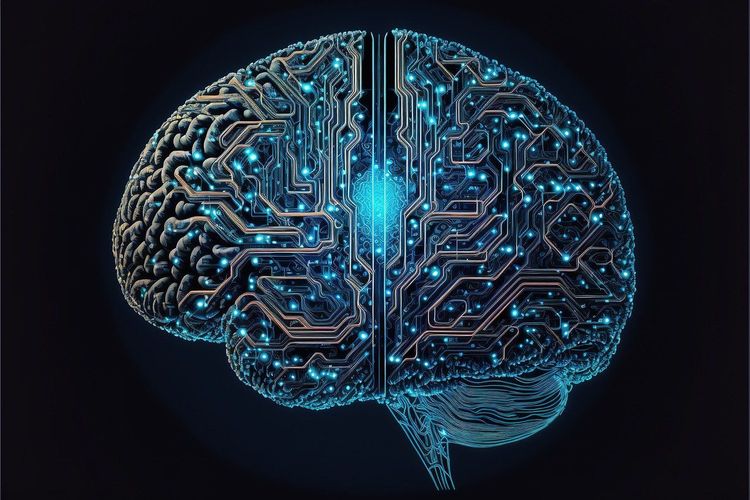Bridging the Gap: Embracing Generative AI in Education
It’s understandable why educators might feel uneasy about generative AI. Concerns about plagiarism, machine-generated essays, and “hallucinations” — instances when systems like ChatGPT or Bard assert false information with confidence — are prevalent. Many educators worry this technology could undermine authentic learning, enabling students to pass assessments without genuinely grasping the material.
While generative AI has been used to bypass traditional learning approaches, platforms like ChatGPT are also stepping in as ad hoc personal tutors for millions, transforming learning habits and enhancing our educational experiences. The possibility of AI-powered teaching assistants that provide mentoring and individualized support is becoming a reality, with the scalability of AI ensuring that everyone can reap its benefits.
The Allure of AI-Enhanced Learning
AI has the potential to make education not only more engaging but also addictive. This phenomenon stems less from technological advancements and more from the core elements that drive learner motivation and engagement.
Reflecting on my childhood in Armenia, I remember how the intense competition of math Olympiads fueled my passion for learning. However, as I pursued math at MIT, I struggled to find that same drive. Throughout my life, I have delved into understanding the motivations behind learning, a journey that inspired me to establish CodeSignal.
Defining Addictive Learning
When discussing AI's role in making learning addictive, I refer to the excitement and eagerness it can instill in learners, fostering a relentless appetite for self-improvement that extends beyond their initial accomplishments. This translates into sustained, long-term motivation — a significant challenge educators face, as a wealth of educational research indicates.
Motivation cannot be overstated, especially when it comes to learning a new language or starting a programming career. Learning is an iterative process where confidence builds over time. The late programming educator Zed Shaw famously likened this to “climbing a mountain of ignorance.” The initial months, marked by uncertainty and confusion, often lead learners to give up. This is why external encouragement is vital to help learners persist—greatness can be just within reach.
One inspiring example is Judit Polgár, recognized as the greatest female chess player and the youngest grandmaster in history. Her father, László Polgár, believed geniuses are cultivated through sustained education rather than born. He opted to homeschool Judit and her sisters, emphasizing chess training from a young age.
The results were astounding. By her teenage years, Judit was hailed as a prodigy, eventually setting records previously held by chess legends like Bobby Fischer. Her father's approach exemplifies how tailored coaching combined with intense practice can lead to unparalleled success.
In a Chess.com interview, Judit credited her father’s teaching for the confidence it instilled: “Private tuition accelerates children's growth, instills confidence, and fuels their appetite for improvement.” This philosophy is critical in considering how generative AI can support motivation in education.
The Quest for Relevance in Learning
Research on the role of generative AI in education is still emerging. Much of the existing literature is speculative, focusing more on potential outcomes than on observable effects, a reflection of AI's nascent stage. As researchers delve deeper, it will be fascinating to see how emerging data align with my insights.
Motivation hinges on relevance, a core principle in John Keller’s ARCS (Attention, Relevance, Confidence, and Satisfaction) model of motivation. Zed Shaw’s "climbing a mountain of ignorance" analogy emphasizes that relevance is crucial for learner engagement.
Generative AI excels at creating hyper-personalized lessons applicable to diverse subjects and real-world contexts, catering to unique learner needs. For educators, this means creating tailored content on-demand and facilitating efficient lesson adaptation.
Transforming Education Through AI
While human interaction remains vital in education, generative AI can significantly expand teachers' capabilities. For instance, teachers can quickly generate customized materials that address individual students’ strengths and weaknesses without extensive time investment. This flexibility allows for more responsive teaching, ultimately benefiting students.
In addition, generative AI can seamlessly integrate with proven methods like gamification. Video games keep players engaged through dopamine loops driven by a sense of progress. In education, generative AI can create varied, tailored content that maintains learner interest while ensuring the reinforcement required for long-term retention.
The Importance of Person-Centered Learning
Long-term success in education relies on aligning content with students’ interests and abilities. Different learners respond to various incentives; some prefer immediate rewards, while others value recognition or long-term goals. Educators must consider these factors in developing learning materials.
Furthermore, recognizing students' diverse abilities is essential. A one-size-fits-all approach may resonate with some but fail many others. The relationship between educators and students is also pivotal. Encouragement messages from teachers like “This is important,” “You can do it,” and “I won’t give up on you” are crucial for motivation. Whether AI can replicate this emotional support remains to be seen.
Although some educational tools have yet to fully embrace these strategies, platforms like ChatGPT can already provide simplified or comprehensive explanations, adapting to learners' needs. The potential for generative AI to enhance educational engagement is enormous, paving the way for a deep transformation in how education is approached.
Building Lifelong Learners with AI
AI, particularly large language models, holds the power to revolutionize learning. The focus has often been on AI's capacity to scale personalized education and democratize learning opportunities beyond elite institutions.
However, it is crucial to acknowledge the psychological impact of these changes. Envisioning AI as a tool that makes learning engaging and compelling is not just a possibility; it is an imminent reality. This shift can foster a new generation of driven learners who are adaptable and continually refining their skills—benefiting not just individuals but the economy and society as a whole.







